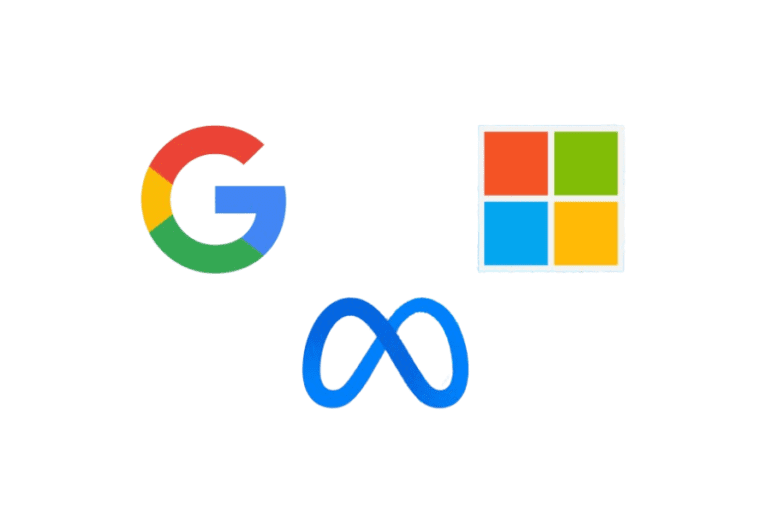TL;DR:
- Meta, Google, and Microsoft/OpenAI are competing to achieve Artificial General Intelligence (AGI).
- Meta’s CEO, Mark Zuckerberg, announced a vision to develop AGI and open-source it.
- Defining AGI and setting measurable benchmarks remain challenging.
- Yann LeCun, Meta’s top AI scientist, emphasizes the complexity of replicating human intelligence.
- Human intelligence’s multifaceted nature makes AGI definition elusive.
- Tech leaders adopt a “you’ll know it when you see it” approach to AGI.
- Apple’s absence from the AGI race raises questions about its strategy.
Main AI News:
In the relentless pursuit of Artificial General Intelligence (AGI), Meta, previously known as Facebook, has thrown its hat into the ring alongside tech giants Google and the Microsoft/OpenAI alliance. This move signifies a critical milestone in the quest for AGI, the AI industry’s most coveted achievement. Yet, amidst the fervor, a fundamental question persists – what exactly is AGI, and how do we ascertain its attainment?
The Quest for AGI:
- Meta’s Ambition: In a recent announcement, Meta CEO Mark Zuckerberg unveiled an audacious vision for the future – the development of AGI with a commitment to open-source the technology for the greater good. However, the industry remains perplexed, as none of these tech juggernauts can provide a clear and concise definition of AGI, let alone a definitive metric for its realization.
- The Key Players:
- OpenAI, the progenitor of ChatGPT, was founded as a non-profit organization in 2015 with the explicit purpose of advancing AGI for the betterment of humanity.
- Google’s DeepMind unit is steadfast in its mission to “solve intelligence” and has progressively merged with Google’s Brain team, forging closer ties to the practical applications of AGI.
- A year ago, Microsoft researchers claimed to have detected “sparks of artificial general intelligence” within OpenAI’s most recent large language model.
The Arduous Path to AGI
The pursuit of AGI has proven to be far more formidable than initially envisaged by the pioneers of AI. While the last two decades have witnessed remarkable advancements in machine learning powered by neural networks, including feats like mastering chess and Go, achieving human-level cognitive capabilities remains an elusive endeavor. It wasn’t until the 2010s that the term “artificial general intelligence” emerged, distinguishing the broader goal from narrower AI objectives like surpassing human experts or passing the Turing test.
The Perplexing Definition
Defining AGI remains a herculean task, as evidenced by Mark Zuckerberg’s somewhat nebulous explanation. The essence of AGI, encompassing a breadth of capabilities, remains a topic open to interpretation.
Yann LeCun’s Insight
Yann LeCun, Meta’s foremost AI scientist, has expressed a sobering perspective on the proximity of AGI, pointing out the stark contrast between a cat’s ability to plan and a 10-year-old’s learning capacity versus current AI capabilities. He asserts that we are still far from achieving human-level intelligence.
Deciphering “Intelligence”
The intricate concept of human intelligence has always been challenging to define. Traditional assessments like IQ tests and the SAT often fall short, plagued by cultural biases. Human intelligence takes on multifarious forms, influenced by psychology, neurology, engineering, philosophy, and the arts. Factors such as perception, time perception, and self-awareness all contribute to the intricate tapestry of human intelligence, making replication in AI a complex task.
The “You’ll Know It When You See It” Approach
In the absence of a precise definition, tech leaders adopt a “you’ll know it when you see it” approach to AGI, which poses its own set of challenges. As technological breakthroughs quickly become part of our everyday lives, AGI could become a constantly receding goalpost, always just out of reach.
Apple’s Enigma
Notably absent from the AGI race is Apple, a company known for its secrecy. Apple may be conducting AGI research in its clandestine labs or could be biding its time, waiting for the right moment to introduce AGI to the mass market, as it has done with previous innovations.
Conclusion:
The AGI race is now in full swing, with Meta, Google, and the Microsoft/OpenAI alliance leading the charge. While the vision is clear, the definition of AGI remains enigmatic. As these tech titans vie for AGI supremacy, the industry and society at large must grapple with the implications of this rapidly evolving field. The world watches with bated breath as Apple’s role in this unfolding saga remains shrouded in secrecy.

